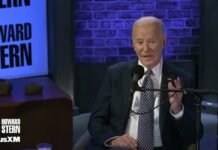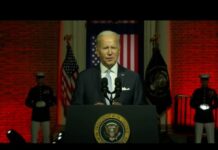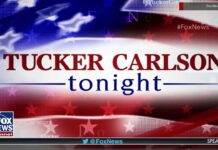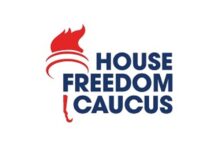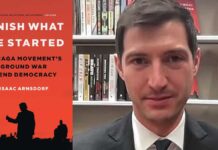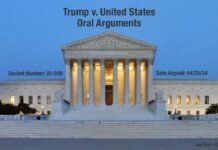Today we are divided into two groups: We the People and They the Politicians. It’s unfortunate, since the politicians came from the people in the first place. However, this is not something new; it was debated even in the days of the Founding Fathers. One thing that created this division is the way in which both groups interpret the U.S. Constitution. The politicians interpret it loosely; We the People (generally speaking) interpret it strictly, as the Founders meant us to.
James Madison may have been short in stature, but among those helping to frame and phrase the Constitution, he was a giant. Standing before Congress one chilly February day, he would state, “I, sir, have always conceived—I believe those who proposed the constitution conceived. . . that this is not an indefinite government deriving its powers from the general terms prefixed to the specified powers—but, a limited government tied down to the specified powers, which explain and define the general terms.”
Thomas Jefferson was also assured that the document had a “safe and honest meaning”; even his rival Alexander Hamilton agreed, feeling this new form of government could do the people no harm, because it was a “limited” constitution.
It has been said that there are two infamous loopholes in the Constitution. The first is the “Necessary and Proper Clause”, also called the “Elastic Clause” because of the looseness of its language and the supposed elasticity in what it permits. It reads: “The congress shall have power to. . . make all laws which shall be necessary and proper for carrying into execution the foregoing powers, and all other powers vested by this constitution in the government of the United States, or in any department or officer thereof.” Second is the “General Welfare” clause: “The congress shall have power to. . . provide for the general welfare of the United States.”
General Welfare Clause
Perhaps the delegates began to regret their choice of wording in the Constitution when different theories of how to interpret the “General Welfare” clause were discussed. During a debate in a state convention, young Governor Randolph of Virginia heatedly exclaimed, regarding a fellow contender with whom he frankly disagreed, “The gentleman has highly colored the danger of giving the general government an indefinite power of providing for the general welfare. I contend that no such power is given.”
Mr. Madison would tell Congress, “If Congress can apply money indefinitely to the general welfare, and are the sole and supreme judges of the general welfare, they may take the care of religion into their own hands; they may establish teachers in every state. . . and pay them out of the public treasury; they may take into their own hands the education of children. . . assume the provision for the poor. . . undertake the regulation of all roads other than post roads; in short, everything. . . would be thrown under the power of Congress. . . and might be called, if Congress pleased, provisions for the general welfare.” And this to the gentlemen of Congress, to their very faces! Madison’s fears came to pass, ever since the “Elastic Clause” has been abused and deliberately misinterpreted.
Necessary and Proper Clause
We can well imagine Madison gripping his quill pen with exasperation as he scribbled out these words: “No axiom is more clearly established in law, or in reason, than that wherever the end is required, the means are authorized; wherever a general power to do a thing is given, every particular power necessary for doing it, is included.” This is, to him, and to Conservatives, simple common sense. Oliver Ellsworth, an unsung Connecticut delegate to the Constitutional Convention and a man of much integrity, noted further that “if the United States go beyond their powers, if they make a law which the Constitution does not authorize, it is void; and the judicial power. . . will declare it to be void.”
“On every question of construction, [let us] carry ourselves back to the time when the constitution was adopted,” Thomas Jefferson suggested, “and instead of trying what meaning may be squeezed out of the text, or invented against it, conform to the probable one in which it was passed.” George Washington quietly observed, upon studying the document, that we must be careful not to “impair the energy of the system, and thus to undermine what cannot be directly overthrown.”
How can we undo the evils of loose constitutional interpretation? Well, it can’t happen overnight, for sure. The first step is for We the People to educate ourselves and others by becoming familiar with our U.S. Constitution. (For a start, highly recommended is the film A More Perfect Union, distributed by the National Center for Constitutional Studies.) If we can produce a national knowledge of these things, we can perhaps impress upon Congress to stay within its limits, and the courts to void all unconstitutional laws. If it becomes realized that We the People identify the difference between loose and strict interpretation, the politicians may not wish to rile us by stepping so flagrantly outside their limits.
Americans, it is time to stand up.










